Yohan Ferrant is a terrific baker who now lives in Spain. Originally from France, he has worked many places, including London's acclaimed St. John Bread & Wine. I met him in on/in the global capital so many of us reside, Facebook. Hanging with him there, Yohan has been wonderfully generous in sharing baking tips and insights. So I decided to invite him into our kitchen at Stir the Pots. Our conversation is shared below.
Yohan, tell us, how did you become a baker?
I started in France, My mother use to make a lot of pastry cake, gauffres, crêpes also bread homemade, and often she let me buy the croissant and the bread at the bakery, a really small and artisanal one, we had this amazing smell all around, you could see the baker and pastry chefs work through a little window. As I was small I had to jump to watch them and one day the windows had opened, so I jumped to hang onto then the small windows broke, the baker get out a bit upset, and told me “I know your mother,but I won't tell her anything cause you´ll become a baker." Some years later I decided to become a baker, what my mind was into.
Where do you bake?
I´m in Spain now, but I was in France and England previously.
Your recent bakes are a method of 48 hours. Can you explain what this does for scheduling, for taste, and does it improve the overall product?
First off all, I work without yeast. To my point of view, the yeast is useless if you work with a levain. Why would you use industrial yeast when you created a natural effervescence? In 1 gram of yeast you have billions cellules and in 1 gram of a levain you had hundreds of thousands. Naturally the yeast will pass through your levain and in a way or another it will affect its own flavor and characteristics. The principal element of biochemical reaction is the water. The water, the flour and the salt play a role of “micro-intelligence” through your product. The 48 hours is the time that it needs to make it, as I believe, leads to its best flavor and texture. The process is very important. Like every chef, you must work hard on a product to define its own character and what you believe is better for it. I had so many experiences to try to find my own style through all flours. Bread is very personal and also very generous.
What inspires you?
Passion and human creativity.
Ancient grains, whole grains; what’s your philosophy regarding milled, modern and different grains?
Well, it´s very delicate today. Probably half of world´s bakers don't really know what flour they're using! The problem today is that you will have to find a good grain grown in good land. Whatever the kind of flour you are using, make sure to know your miller, go to visit their production. A long time ago, people used to see and eat lot of biodiversity. We used to have thousands of kinds of plants. Today we are all getting so productive that we forgot about it. People start to get sick and it´s probably because about what they eat, so whatever the grains I choose, I make sure it won’t affect my conscience when I will transform the flour to bread. We have a moral contract as bakers with our client and our services.
What is your feeling about gluten free?
Well, I guess it's more a marketing mode. It is also a big misunderstanding. There is no medicine against this “gluten” problem. The fact that you decide to eat gluten free, means that you have a high intolerance about gluten. It´s also a result of the bread industry and some bakers that use gluten to make bread so fast with more and more yeast. People must know that a good bread with levain and long fermentation degrades the gluten, and the all wheat allergen is much more digestive. There is absolutely no problem for someone, even with a gluten intolerance, so eat good bread.
Is there a change in bread baking, method techniques, or is it adjustments to trends?
There are trends, of course. The method are, as I said before, up to the baker. That is why it is also so interesting; bread is the oldest food science. We still try to get new trends, but at the end all is about flavor.
Stenciling? Is it a trademark, or a new scarification of bread?
It is both, I guess.
Local grains versus buying from outside of your region, do you favor one over the other?
Once again, it depends. Let´s say that you have a good miller around but it is too hot to cultivate some rye flour. You will have to seek others options. Just make sure it is good.
Do you tinker or re-tweak formulas constantly? Or do you decide what the best is and keep the method?
Interesting question; bakery is like magic. You can have the same recipe and make a millions different product with different process and method. I just like to find the one I guess is the best for me. And others will find a way to make it differently and make it the best for them.
Do you think home bakers inspire professional bakers?
Yes, why not? We all learn from each other.
What levain do you prefer using; dur or liquide? And why?
I use both of them, depending on the texture and the flavor that I would like to give to my bread. Sometimes I use both for one product.
What’s your favorite bread?
That one who makes me smile.
Do you eat a lot of bread?
Definitely. A lot!
Why do bakers share their work on social network?
I guess it is one of the easiest ways to share today, and it is good to evolve. Sharing is the key!
Are bakers always going to bake late at night? What do you think of baking during daylight hours? With your 48 hour method. does it give you more time?
No. Not everybody are baking late at night! You can also bake during the day. It will depend about what you want. Generally, some clients come to buy Viennoiserie or bread in the morning. But we don't have to forget that most of the clients are buying their bread during the day. I would prefer to see my baker working during those hours. It makes the bakery more alive. We have a lot of systems now that allow the baker to be working during the day. And that is my case with the 48 hour process.
Will you write a book?
Why not?! It would be lovely to share my knowledge through a book. For me, I am fortunate to do what I love and would be more to share with everybody about that fantastic world which is the bakery.
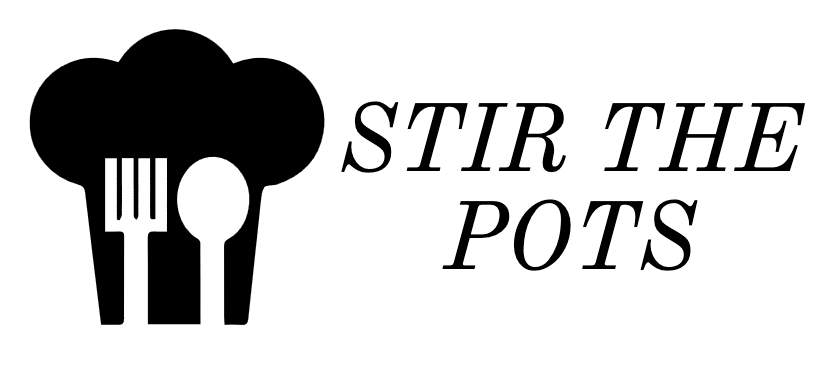
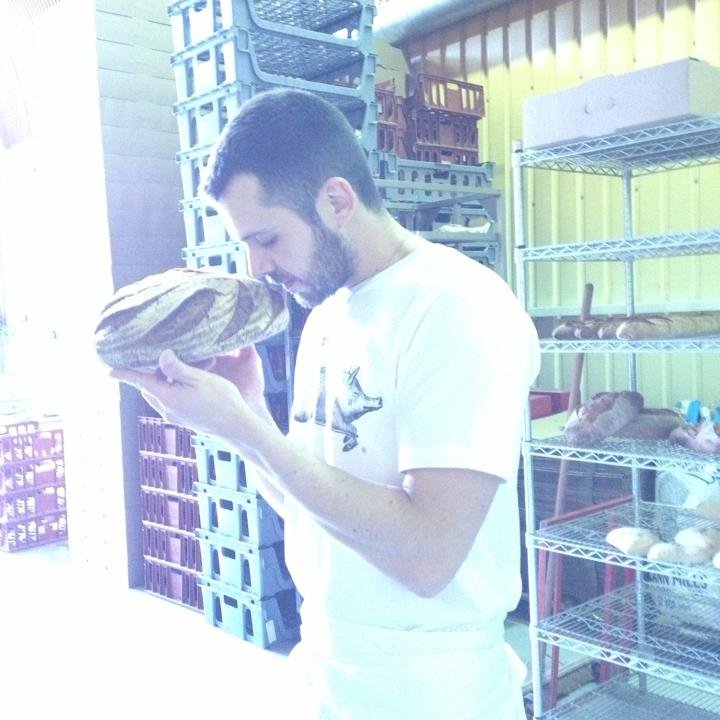
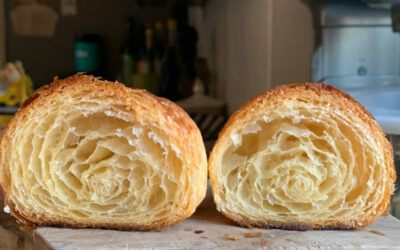
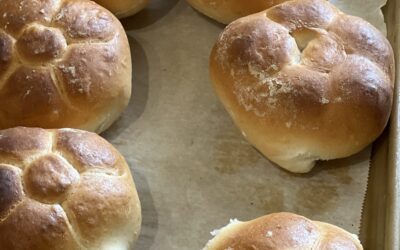

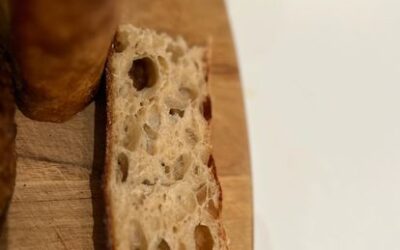
Great words here!
thanks to both of you for this.
long live real bread!
Thanks for sharing! Happy Baking!